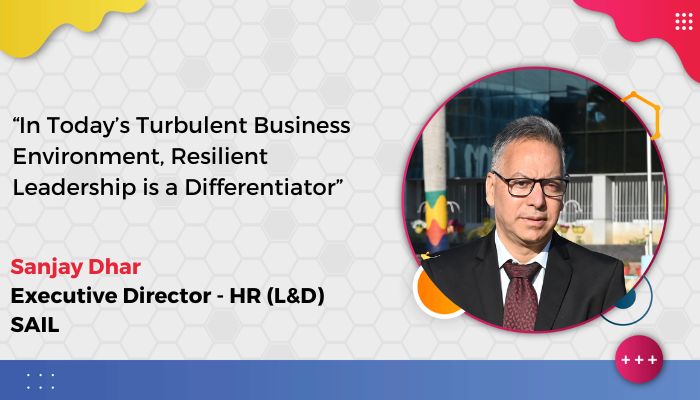Authored by Nilesh Gupta, Group Head – IT Infrastructure and Information Security, TeamLease Services Ltd
The global surge in cybercrime underscores the urgent need for stronger defenses. In Canada alone, over 12 billion malicious attempts were recorded recently, while Indian educational institutions faced more than two lakh cyberattacks and nearly four lakh data breaches in just nine months. These incidents reflect the growing sophistication of attackers who now exploit Crime-as-a-Service models, offering ready-made ransomware and data theft tools for purchase online. With AI increasingly being weaponized in cybercrime, organizations can no longer afford reactive measures—they must prioritize proactive strategies such as regular security audits to safeguard assets and build resilience.
We need to be more careful with security. It is just like a house should not just have a door, but also a safety door and CCTV surveillance. The cost of a data breach is always higher than the money spent on security.
The major steps to be taken for any organization in today’s world are:
1. Implement robust security measures
- Establish strong governance and monitoring mechanisms
- Continuous improvement in the security posture
- Regular Security Audits
If we need to focus more on security audits, it is one of the major tools to keep the security up-to-date. It is very important for any organization to have audits and follow the risk assessment and gap analysis.
In today’s digital age, where data breaches and cyber threats are increasingly common, security audits have become a vital tool for organizations to safeguard their assets, ensure compliance, and build trust. A security audit is not just a technical check—it’s a strategic exercise that involves leadership, transparency, and collaboration across all stakeholders.
Why Security Audits Are Useful
Security audits help organizations:
– Identify vulnerabilities in systems, processes, and infrastructure.
– Ensure compliance with industry standards, legal regulations, and internal policies.
– Protect sensitive data from unauthorized access or breaches.
– Improve operational efficiency by streamlining security practices.
– Build trust with customers, partners, and regulators.
By proactively identifying risks, audits enable organizations to take corrective actions before issues escalate into major incidents.
Preparation for a Security Audit
Effective preparation is key to a successful audit. Here’s what organizations should do:
– Define the scope: Clearly outline what systems, departments, and processes will be audited.
– Gather documentation: Policies, procedures, access logs, incident reports, and system configurations should be ready.
– Assign responsibilities: Ensure each team knows their role and what information they need to provide.
– Conduct internal reviews: Perform a self-assessment to identify and fix obvious gaps.
– Ensure system readiness: Make sure systems are accessible and functioning for the audit process.
Role of Leadership in Security Audits
Leadership plays a critical role in the success of a security audit:
– Setting the tone: Leaders must emphasize the importance of security and transparency.
– Allocating resources: Ensure teams have the time, tools, and support needed for the audit.
– Driving accountability: Encourage teams to take ownership of their areas and findings.
– Supporting corrective actions: Approve and prioritize remediation efforts based on audit results.
When leadership is actively involved, it sends a strong message that security is a strategic priority.
Why Stakeholder Participation Is Crucial
Security is not the responsibility of just the IT department—it’s a shared responsibility. Stakeholders from HR, finance, operations, and other departments must participate because:
– They manage systems and data that may be audited.
– Their input helps auditors understand real-world workflows.
– Collaboration ensures that findings are accurate and actionable.
Without full participation, audits may miss critical issues or fail to reflect the true security posture of the organization.
Importance of Closing Audit Findings
Audit findings are not just observations—they are opportunities for improvement. Closing them is essential because:
– Unresolved issues can lead to breaches or compliance failures.
– They may impact certifications, partnerships, or customer trust.
– They provide measurable progress in strengthening security.
Organizations should treat findings as high-priority tasks and track them to closure with clear timelines and ownership.
Transparency: The Cornerstone of a Successful Audit
Trying to hide facts or mislead auditors can be detrimental. Instead, organizations should:
– Be open and honest about their current security posture.
– Provide accurate information, even if it reveals weaknesses.
– View auditors as partners, not adversaries.
Auditors help identify non-conformities—areas where practices deviate from standards. These insights are invaluable for implementing corrective actions that enhance security and resilience.
Conclusion
Security audits are not just a checkbox—they are a strategic investment in the organization’s future. With proper preparation, leadership involvement, stakeholder collaboration, and a commitment to transparency, audits can uncover hidden risks and pave the way for a stronger, safer organization.
Disclaimer: The opinions and views expressed in this article, including any accompanying data, are the sole responsibility of the author and should not be construed as reflecting the official policy or position of India Employer Forum.






